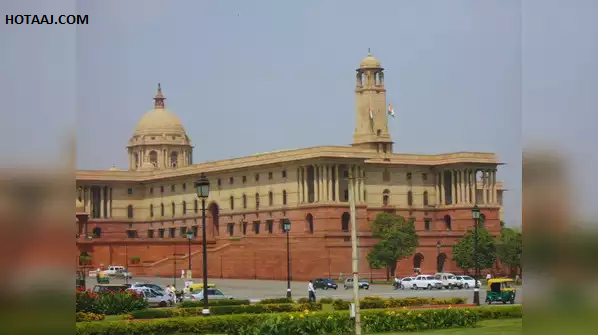
Politicians and their Educational Qualifications
As the world’s largest democracy, India places the power of decision-making in the hands of its citizens, making it vital for voters to be well-informed when choosing their representatives. While education is just one of the many factors in determining a politician’s competence, it plays an important role in shaping their understanding of complex issues and the ability to contribute to the nation’s growth. Below is a list of 10 Indian politicians from various political parties who stand out for their impressive academic qualifications:
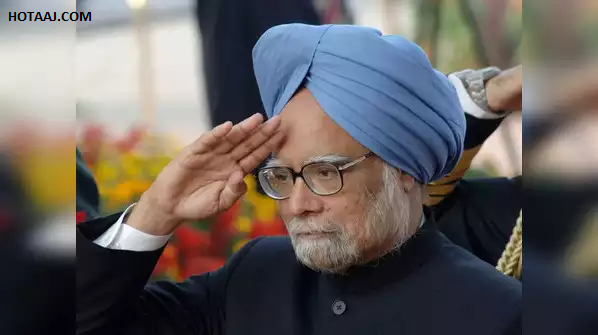
Dr. Manmohan Singh is one of the most distinguished political leaders in India, known for his exemplary leadership and academic qualifications. Below are key details about his background and achievements:
Party: Indian National Congress (INC)
Educational Qualifications:
- B.A. in Economics: Punjab University, Chandigarh, India.
- M.A. in Economics: Punjab University, Chandigarh, India.
- D.Phil. in Economics: University of Oxford, UK.
Dr. Singh is widely recognized for his academic prowess, particularly in the field of economics. He was a distinguished scholar, and his educational background contributed significantly to his success in government.
Notable Achievements:
- Prime Minister of India (2004-2014):
- Dr. Singh served as the 14th Prime Minister of India for two consecutive terms. His tenure was marked by significant economic reforms, social development policies, and a focus on maintaining India’s position in the global arena.
- Economic Reforms:
- He is credited with leading India through a period of major economic reforms during the early 1990s when he served as the Finance Minister under Prime Minister P.V. Narasimha Rao.
- He played a key role in the liberalization of the Indian economy, including reducing trade barriers, privatizing state-owned enterprises, and encouraging foreign investment, which led to India’s rapid economic growth.
- Global Recognition:
- Dr. Singh’s tenure as Prime Minister was also marked by India’s increasing prominence on the global stage, with his leadership strengthening diplomatic relations and boosting India’s economy through reforms such as the Goods and Services Tax (GST).
- Awards and Honours:
- Dr. Singh has received numerous awards throughout his career, including honorary degrees and global recognition for his contributions to economic policy-making.
- He was named one of the most powerful people in the world by Forbes magazine multiple times.
Dr. Manmohan Singh is remembered for his calm and intellectual approach to politics and governance. His legacy as an economist and statesman continues to influence India’s policy-making and development strategies.
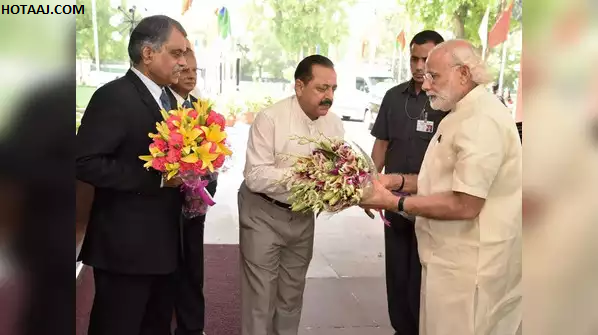
Dr. Jitendra Singh is a prominent Indian politician who has served in various capacities within the government. He is known for his remarkable educational qualifications and extensive work in the fields of public administration and scientific research.
Party: Bharatiya Janata Party (BJP)
Educational Qualifications:
- MBBS: Government Medical College, Jammu, India.
- M.D. in Medicine: Government Medical College, Jammu, India.
- Diploma in Endocrinology: University of Liverpool, UK.
Dr. Singh’s educational background in medicine and endocrinology has significantly shaped his career, both as a politician and a professional in the medical field.
Notable Achievements:
- Minister of State for Science and Technology (Current):
- Dr. Jitendra Singh currently serves as the Minister of State (Independent Charge) for Science and Technology in the Government of India. He has played a pivotal role in advancing India’s scientific research and innovation.
- Minister of State for the Department of Space:
- He is also in charge of the Department of Space, overseeing India’s space exploration initiatives and working to enhance the country’s capabilities in space technology.
- Political Career:
- Dr. Singh has been elected to the Lok Sabha (Lower House of Parliament) from the Udhampur constituency in Jammu and Kashmir multiple times, and has gained recognition for his work in the region.
- He has held various portfolios, including Minister of State for Personnel, Public Grievances, and Pensions, where he worked on improving transparency and governance.
- Work on Jammu and Kashmir:
- As a Member of Parliament for Udhampur, Dr. Jitendra Singh has been instrumental in advocating for the development of Jammu and Kashmir. His contributions have focused on improving infrastructure, healthcare, and creating new opportunities for the youth in the region.
- Promotion of Scientific Advancements:
- Dr. Singh has been a key figure in promoting technological and scientific advancements in India. He has been associated with several initiatives aimed at encouraging innovation in the country’s space and scientific research sectors.
- Leadership in Healthcare:
- With a background in medicine, Dr. Singh has also worked on healthcare policies, especially during his tenure in the Ministry of Health and Family Welfare.
Recognition:
Dr. Jitendra Singh has received praise for his dedication to public service, commitment to innovation, and efforts to uplift his constituency. His extensive medical education and experience, combined with his political career, make him one of India’s highly qualified leaders.
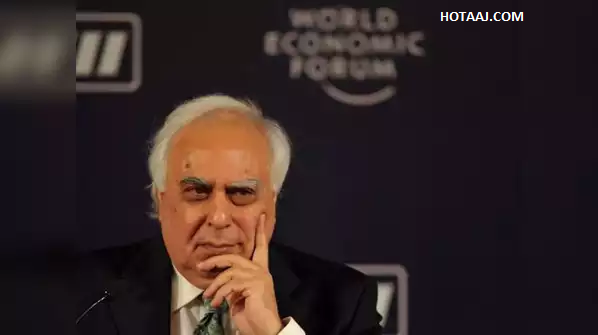
Kapil Sibal is a well-known Indian politician, lawyer, and former union minister. With an impressive educational background and a strong career in both the legal and political arenas, he is considered one of India’s most highly qualified politicians.
Party: Indian National Congress (INC)
Educational Qualifications:
- B.A. (Hons.) in History: St. Stephen’s College, University of Delhi.
- LL.B.: Faculty of Law, University of Delhi.
- M.A. in Political Science: University of Delhi.
- Bar-at-Law: Cambridge University, UK.
Kapil Sibal’s educational qualifications reflect a deep understanding of law, history, and political science, which has greatly contributed to his effectiveness as a leader and legislator.
Notable Achievements:
- Legal Career:
- Kapil Sibal is a distinguished lawyer who has practiced law in the Supreme Court of India for several decades. He is regarded as one of the leading constitutional experts in the country.
- He has represented high-profile clients in various landmark cases and is known for his eloquent legal arguments and depth of knowledge.
- Union Minister:
- Kapil Sibal served as the Minister for Communications and Information Technology and the Minister of Law and Justice in the United Progressive Alliance (UPA) government. He played a pivotal role in shaping India’s policies related to communication, technology, and legal reforms.
- During his tenure as the Minister of Law and Justice, he was instrumental in bringing about several important legal reforms and worked towards simplifying the judicial process.
- Role in Legal Reforms:
- Kapil Sibal has been an advocate for judicial reforms, focusing on increasing the efficiency and accessibility of the Indian judicial system. He has been a key figure in addressing issues related to delays in legal proceedings and ensuring justice for all.
- Educational Contributions:
- As an academic, Kapil Sibal has been involved in numerous initiatives to improve education in India. He has served as the Union Minister for Human Resource Development, where he focused on enhancing the quality of education, introducing new educational policies, and working towards increasing access to education at all levels.
- Advocate for Technology:
- In his role as the Minister for Communications and Information Technology, Sibal championed India’s digital growth. His efforts in pushing for the modernization of India’s IT infrastructure helped accelerate the country’s journey toward becoming a global IT hub.
- International Recognition:
- Sibal has gained recognition for his work in law and politics both within India and internationally. He is often invited to speak at global forums and conferences due to his expertise in constitutional law, political science, and governance.
Recognition:
Kapil Sibal’s vast educational background and experience in both the legal and political fields have made him a respected figure in India. His contributions to law, education, and technology have made a lasting impact on India’s political and legal landscape. As one of the most qualified politicians in the country, his work continues to influence India’s governance, legal reforms, and policy-making.
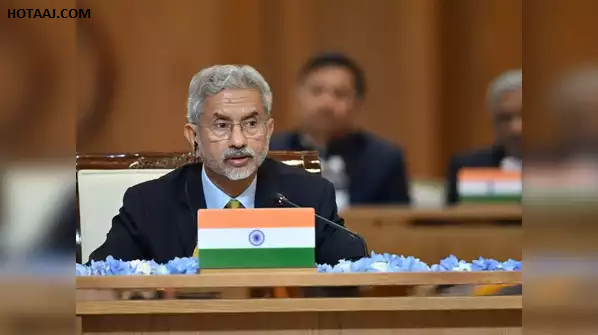
Dr S Jaishankar
Dr. S. Jaishankar is one of India’s most accomplished diplomats and politicians. With an exceptional academic and professional background, he is recognized both within India and internationally for his contributions to Indian diplomacy and foreign policy.
Party: Bharatiya Janata Party (BJP)
Educational Qualifications:
- B.A. (Hons.) in Economics: St. Stephen’s College, University of Delhi.
- M.A. in Political Science: Jawaharlal Nehru University (JNU), New Delhi.
- M.Phil. in International Relations: Jawaharlal Nehru University (JNU), New Delhi.
- D.Phil. (Doctorate): University of Oxford, UK.
Dr. Jaishankar’s academic background, particularly in international relations, political science, and economics, has played a crucial role in shaping his career as a diplomat and policymaker.
Notable Achievements:
- Career as a Diplomat:
- Dr. Jaishankar is a career diplomat who served as India’s Foreign Secretary from 2015 to 2018. His tenure was marked by several significant diplomatic achievements and strategic partnerships between India and other global powers.
- He has held several prestigious diplomatic positions, including India’s Ambassador to the United States, India’s Ambassador to China, and High Commissioner to Singapore. His expertise in international relations and his leadership in critical global forums have established him as a leading figure in Indian diplomacy.
- Minister of External Affairs:
- In 2019, Dr. S. Jaishankar was appointed as the Minister of External Affairs in Prime Minister Narendra Modi’s Cabinet. In this capacity, he has played an instrumental role in shaping India’s foreign policy and strengthening India’s international relations.
- As the External Affairs Minister, Dr. Jaishankar has focused on enhancing India’s global standing, managing strategic alliances, and representing India at various international platforms.
- Advocate of India’s Strategic Interests:
- During his diplomatic career, Dr. Jaishankar was crucial in managing India’s relations with key countries, including the United States, China, Russia, and the European Union. His in-depth knowledge of geopolitics and international law has made him an invaluable asset in shaping India’s foreign policy.
- He has been involved in high-stakes negotiations and played a leading role in India’s engagement with global institutions like the United Nations, G20, BRICS, and the Shanghai Cooperation Organization (SCO).
- Expert in International Affairs:
- Known for his deep understanding of international affairs, Dr. Jaishankar has been instrumental in crafting India’s policy on issues like counterterrorism, climate change, trade, and security.
- He has been a strong advocate for India’s role in global governance and its emergence as a major power on the world stage. His leadership in handling complex international challenges has earned him respect globally.
- Author and Speaker:
- Dr. Jaishankar has also authored several books on foreign policy and international relations, contributing to the intellectual discourse on India’s position in the world. He is a sought-after speaker at global forums, conferences, and academic institutions, where he shares his insights on global diplomacy and India’s foreign policy.
- Recognition and Awards:
- Dr. Jaishankar’s contributions to Indian diplomacy have been widely recognized. He has received numerous accolades for his work, including honors from foreign governments and international organizations.
Legacy and Impact:
Dr. S. Jaishankar’s exceptional educational background and distinguished career in diplomacy and politics have made him one of the most respected figures in India’s foreign policy establishment. His efforts to elevate India’s global stature, manage complex bilateral relationships, and represent India on the international stage have significantly shaped India’s foreign policy direction in the 21st century. His leadership continues to play a pivotal role in advancing India’s national interests and strengthening its position as a global power.
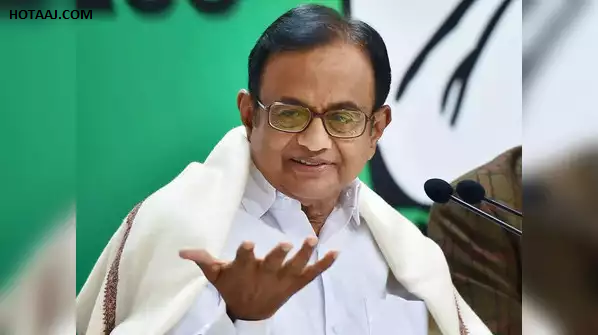
P Chidambaram
P. Chidambaram is one of India’s most distinguished politicians and economists, known for his expertise in financial matters, governance, and policy-making. With a long career in both legislative and executive roles, Chidambaram has played a critical role in shaping India’s economic policies.
Party: Indian National Congress (INC)
Educational Qualifications:
- B.A. (Hons.) in Economics: Presidency College, University of Madras.
- M.A. in Economics: University of Delhi.
- Bachelor of Law (LL.B.): University of Delhi.
- Harvard University: He also attended Harvard University, where he was involved in advanced studies in economics, though he did not complete a formal degree from there.
Chidambaram’s academic background in economics, law, and public policy has been central to his career in government and his role as a leader in the Indian National Congress.
Notable Achievements:
- Career in Public Service:
- Chidambaram has had a long and successful career in Indian politics, serving as a Member of Parliament (MP) for several terms. He has represented the Sivaganga constituency in Tamil Nadu.
- He served as the Minister of Finance from 2004 to 2008 and again from 2012 to 2014. During his tenure as finance minister, he was credited with implementing several reforms that contributed to India’s economic growth.
- Minister of Home Affairs:
- Chidambaram served as the Minister of Home Affairs from 2008 to 2012. In this role, he oversaw critical areas like national security, counterterrorism efforts, and internal security. He played a key role in handling the aftermath of the 26/11 Mumbai attacks and in strengthening India’s counterterrorism framework.
- Economic Reforms:
- As Finance Minister, Chidambaram made significant contributions to India’s economic policies. He was instrumental in pushing for economic liberalization, introducing fiscal reforms, and managing the economic challenges faced by the country, including the 2008 global financial crisis.
- He is often credited for his tax reforms, including initiatives that improved India’s tax collection and compliance. His reforms in the banking and financial sectors are still widely acknowledged for making India’s economy more resilient.
- Advocacy for Social Welfare:
- Chidambaram has consistently advocated for policies aimed at poverty reduction and inclusive growth. His policies have focused on expanding access to healthcare, education, and social security for India’s marginalized populations.
- He supported the Right to Information Act and the National Rural Employment Guarantee Act (NREGA), both aimed at enhancing transparency in government functioning and providing employment to rural populations.
- Global Financial Standing:
- Recognized internationally for his expertise in economics and finance, Chidambaram has represented India at various global forums such as the World Economic Forum and the G20 summit. He has built relationships with international financial institutions, contributing to India’s growing influence in global economic affairs.
- Author and Economist:
- Apart from his political career, Chidambaram has been an advocate of economic reform and has written extensively on finance, economics, and governance. His writings and speeches on India’s economic trajectory have earned him recognition both in India and abroad.
- He has authored books and articles that delve into India’s economic policies, governance, and challenges facing the global economy.
- Legal and Constitutional Contributions:
- As a trained lawyer, Chidambaram has also contributed to the legal landscape of India. He has been involved in several high-profile legal cases and has played a role in shaping policy decisions concerning the legal and judicial framework of India.
- Recognition and Awards:
- Chidambaram has received numerous accolades for his work in governance and economics, both from national and international bodies. His contributions to India’s economic growth and governance have earned him a place among India’s most respected leaders.
Legacy and Impact:
P. Chidambaram’s leadership and contributions to India’s economic and internal policy have left a lasting impact on the country. His ability to balance economic reforms with social welfare initiatives has shaped India’s economic development over the past few decades. As a seasoned politician and economist, his career exemplifies the critical intersection of public service, finance, and policy-making in shaping the future of India.
Chidambaram’s legacy as a policymaker and his role in leading India’s financial strategy will continue to influence future generations of leaders and economists. His expertise remains invaluable in navigating the complex challenges facing India’s governance and economic landscape.
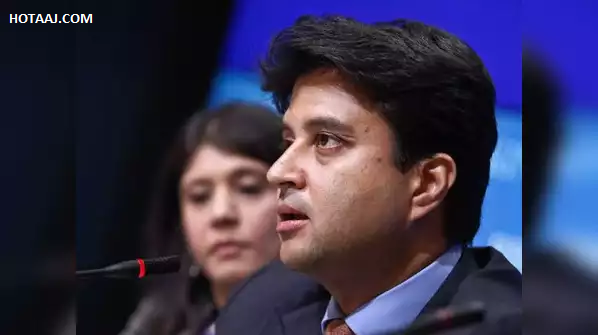
Jyotiraditya Scindia
Jyotiraditya Scindia is an Indian politician and a prominent leader of the Bharatiya Janata Party (BJP). He has had a notable career in Indian politics, known for his leadership in various government roles and his background in education and business.
Party: Bharatiya Janata Party (BJP)
Educational Qualifications:
- B.A. in Economics: Harvard University
- Master’s in Business Administration (MBA): Stanford Graduate School of Business
Scindia’s academic qualifications in economics and business have contributed to his analytical approach to policy and governance, making him a well-rounded leader.
Notable Achievements:
- Political Career:
- Scindia is the Member of Parliament (MP) for Guna, Madhya Pradesh, and has held this position for several terms. He was first elected in 2002 as a member of the Indian National Congress (INC) and later switched allegiance to the BJP in 2020.
- He has held several key political positions, including being the Minister of State for Commerce and Industry and Minister of State for Aviation in the Government of India.
- Minister of Civil Aviation:
- As the Minister of Civil Aviation from 2019 to 2021, Scindia played an important role in reforming the aviation sector. He was involved in policies related to enhancing air connectivity across the country, strengthening the civil aviation infrastructure, and promoting private sector participation in the sector.
- Focus on Infrastructure Development:
- In his tenure as Minister, Scindia worked towards improving the infrastructure in the aviation sector, including the expansion of airports, the development of regional connectivity schemes, and enhancing passenger services.
- He also worked towards the privatization of airports, ensuring better management and improved facilities for passengers.
- Leadership in Madhya Pradesh Politics:
- Scindia is a prominent political figure in Madhya Pradesh, where he has been associated with significant political developments. He was a key leader of the Congress in the state until his switch to the BJP, which led to a major political shift in the state’s politics.
- His move to the BJP was seen as a strategic shift that altered the political landscape of Madhya Pradesh, strengthening the party’s position in the state.
- Commitment to Rural Development and Empowerment:
- Scindia has been an advocate for rural development and agriculture, focusing on improving the livelihoods of farmers in Madhya Pradesh. He has been involved in various welfare programs aimed at addressing the challenges faced by the farming community, particularly in the Guna region.
- Social Initiatives and Welfare:
- Beyond politics, Scindia has been actively involved in several social initiatives. He has supported education, healthcare, and infrastructure development in the rural areas of Madhya Pradesh.
- His philanthropic efforts have included supporting local communities, particularly in his family’s ancestral region, to improve access to education and medical facilities.
- Business Acumen and Expertise:
- With his MBA from Stanford University, Scindia brings a strong business acumen to his political career. He has often emphasized the importance of economic reforms and improving India’s business environment, particularly in terms of attracting investment and creating job opportunities.
- Scindia Family Legacy:
- Scindia is part of the royal Scindia family of Gwalior, with deep historical roots in India’s princely state system. His family’s legacy in politics and governance has contributed to his stature and influence in both Madhya Pradesh and national politics.
Legacy and Impact:
Jyotiraditya Scindia has emerged as one of the most influential and young leaders in Indian politics, with a clear focus on infrastructure development, rural welfare, and economic growth. His transition from the Congress to the BJP marked a pivotal moment in his political career, where he has successfully navigated his role in the government with significant reforms in aviation and business.
Scindia’s educational background in economics and business has helped him make informed decisions regarding governance, and he continues to be a prominent voice in Indian politics. As a leader with a mix of political heritage, business acumen, and a strong commitment to public service, he is well-positioned to contribute further to India’s development and modernization.
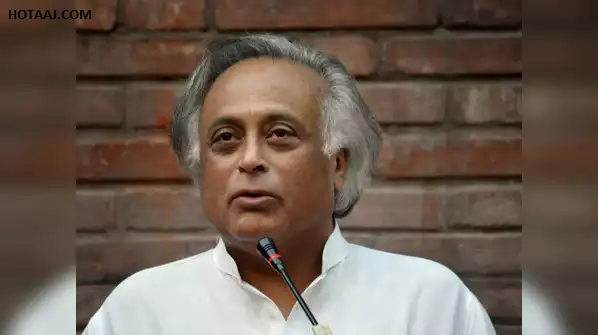
Jairam Ramesh
Jairam Ramesh is a distinguished Indian politician and a senior leader of the Indian National Congress (INC). Known for his intellectual depth and policy expertise, Ramesh has played a crucial role in shaping India’s political and economic landscape.
Party: Indian National Congress (INC)
Educational Qualifications:
- B.Tech in Mechanical Engineering: Indian Institute of Technology (IIT) Bombay
- Master’s in Public Administration (MPA): Harvard University
Jairam Ramesh’s education in mechanical engineering from IIT Bombay and his further studies at Harvard University in public administration have equipped him with both technical knowledge and a strong understanding of governance and policy-making.
Notable Achievements:
- Political Career:
- Ramesh has been a Member of Parliament (MP) for multiple terms and has represented the constituencies of Karnataka and Andhra Pradesh. His political career has spanned over several decades, and he has held significant positions in the Congress Party.
- He has served as the Minister of State for Environment and Forests and the Minister of Rural Development. Ramesh has been recognized for his expertise in policy formulation, particularly in environmental and rural development issues.
- Minister of Environment and Forests:
- As the Minister of Environment and Forests from 2009 to 2011, Ramesh was instrumental in shaping India’s environmental policies, especially in terms of balancing economic growth with environmental conservation.
- Under his leadership, India played a key role in international climate change negotiations, and he made significant contributions to the National Action Plan on Climate Change. He was known for his pragmatic approach to environmental challenges, focusing on sustainable development and clean energy.
- Minister of Rural Development:
- As Minister of Rural Development, Ramesh worked on crucial rural welfare programs aimed at improving the living standards of rural Indians.
- He was involved in the National Rural Employment Guarantee Scheme (MGNREGA), which sought to provide employment to rural populations, especially in economically backward regions.
- Economic and Trade Expertise:
- Ramesh has also held the position of Minister of State for Commerce and Industry. During this time, he was responsible for overseeing India’s economic policies, including trade agreements and negotiations with other countries.
- He has been involved in discussions related to India’s position on global trade policies, and his deep understanding of economics has helped in formulating policies for enhancing India’s international trade relations.
- Advocacy for Sustainable Development:
- Known for his advocacy of sustainable development, Ramesh has consistently argued for policies that integrate environmental protection with economic growth. He played a crucial role in pushing for renewable energy and environmental conservation measures, aligning India’s development with the global climate change agenda.
- He has also been a vocal proponent of biodiversity conservation, particularly concerning forest and wildlife preservation.
- Author and Intellectual Contributions:
- Apart from his political career, Ramesh is a well-respected author and has written extensively on India’s environment, politics, and economic issues.
- His books and articles have contributed to the intellectual debate on climate change, rural development, and India’s economic reforms. Some of his notable works include books on the political economy of India, which have been widely praised for their depth and insight.
- Leadership in Policy Innovation:
- Ramesh has been recognized for his ability to push through important legislative changes, including policies related to land acquisition, forest rights, and climate change.
- He played a key role in the Forest Rights Act of 2006, which recognized the rights of forest-dwelling communities in India. His leadership in the environment ministry made significant strides in making India’s policies more inclusive and progressive.
- Commitment to Transparency and Governance:
- Throughout his career, Jairam Ramesh has advocated for good governance, transparency, and accountability in public administration. He has emphasized the need for efficient delivery of public services and has been a strong supporter of anti-corruption measures.
- Strategic Role in Indian National Congress:
- Ramesh has been a close advisor to several Congress leaders, including Sonia Gandhi and Rahul Gandhi, and has contributed significantly to party strategy and policy formulation.
- He has played an important role in shaping the party’s vision for India’s future, particularly in terms of economic development, climate action, and rural welfare.
- International Recognition:
- Ramesh has earned international recognition for his contributions to global discussions on climate change and environmental protection. He has been part of various United Nations climate summits and has represented India at several international forums.
Legacy and Impact:
Jairam Ramesh has emerged as one of the most intellectually prominent figures in Indian politics, with a career spanning both domestic and international policy-making. His qualifications from IIT Bombay and Harvard University, combined with his extensive experience in the Indian government, make him one of India’s most qualified politicians.
Ramesh has made significant contributions in areas such as environmental conservation, rural development, economic policy, and governance. His leadership and vision for sustainable growth continue to shape India’s development trajectory, making him an influential voice in Indian politics.
References
- ^ “The Constitution (Amendment)”. Archived from the original on 28 March 2015., “We, The People of India having solemnly resolved to constitute India into a Sovereign Socialist Secular Democratic Republic and to secure to all its…”
- ^ “Article Preamble, Section Preamble” (PDF). Constitution of the Republic of India. 26 November 1949. Archived from the original (PDF) on 9 September 2014.
- ^ “The Constitution (Forty-second Amendment) Act, 1976”. India Code. Archived from the original on 28 March 2015. Retrieved 14 April 2014.
- ^ M. Lakshmikanth 2012, pp. 389–390.
- ^ “General Election 2014”. Election Commission of India. Archived from the original on 23 May 2014. Retrieved 21 May 2014.
- ^ “Need for accountability in politics of dynasty”. dailypioneer.com. Archived from the original on 17 January 2017. Retrieved 17 January 2017.
- ^ Jump up to:a b Chhibber⇑, Pradeep (March 2013). “Dynastic parties Organization, finance and impact”. Party Politics. 19 (2): 277–295. doi:10.1177/1354068811406995. S2CID 144781444.
- ^ V-Dem Institute (2023). “The V-Dem Dataset”. Retrieved 14 October 2023.
- ^ “A prime ministerial form of government”. The Hindu. 16 June 2014. ISSN 0971-751X. Retrieved 25 May 2024.
- ^ “Government of India, Structure of Government of India”. Elections in India. Retrieved 25 May 2024.
- ^ “Constitution of India | National Portal of India”. 11 November 2019. Archived from the original on 11 November 2019. Retrieved 25 May 2024.
- ^ “Criminal Laws – Evidence Act, Criminal procedure Code,Indian Penal Code, Criminal Lawyer”. www.legalserviceindia.com. Retrieved 25 May 2024.
- ^ Laxmikanth, M (2017). Indian Polity. McGraw Hill. p. 1145.
- ^ Jump up to:a b “What does ‘One Nation, One Election’ mean? Pros and cons of simultaneous polls”. India Today. 31 August 2023. Retrieved 11 July 2024.
- ^ “High-Level Committee Report on One Nation, One Election”. INSIGHTS IAS – Simplifying UPSC IAS Exam Preparation. 16 March 2024. Retrieved 11 July 2024.
- ^ Krzysztof Iwanek (2 November 2016). “The Curious Stories of Indian Party Symbols”. The Diplomat. Archived from the original on 19 April 2017. Retrieved 19 April 2017.
- ^ Jump up to:a b “Election Commission of India Press Note”. Archived from the original on 5 March 2016. Retrieved 13 March 2014.
- ^ Election Commission of India (26 March 2024). “Commission’s Main Notification dated 26.03.24 containing list of National Parties, their Symbols and addresses”.
- ^ “UPSC Notes on Registered Unrecognised Political Parties (RUPP)”. BYJUS. Retrieved 26 May 2024.
- ^ Hicken & Kuhonta 2014, p. 205.
- ^ Basu & Chandra 2016, p. 136.
- ^ “Is the BJP less dynastic than the Congress? Not so, Lok Sabha data shows”. 29 March 2019.
- ^ Chandra 2016, pp. 131, 136.
- ^ “Coalition Government in India – Meaning and Features [UPSC Polity Notes]”. BYJUS. Retrieved 26 May 2024.
- ^ Agrawal, Puroshottam (1 September 1999). “Identity debate clouds India’s elections”. Le Monde diplomatique. Retrieved 20 September 2022.
- ^ “Anti-Terrorism Legislation”. Human rights watch. 20 November 2001. Archived from the original on 3 July 2017. Retrieved 6 August 2019.
- ^ Jump up to:a b c Guha 2008, pp. 637–659.
- ^ “Shiv Sainiks will maintain peace post-Ayodhya verdict: Uddhav”. Hindustan Times. HT Media Ltd. Archived from the original on 3 March 2014. Retrieved 13 March 2014.
- ^ Wax, Emily (24 July 2008). “With Indian Politics, the Bad Gets Worse”. The Washington Post. Archived from the original on 8 November 2012. Retrieved 22 May 2010.
- ^ “BTI 2022 India Country Report”. BTI 2022. Retrieved 8 August 2023.
- ^ Krishnankutty, Pia (13 March 2023). “Freedom ‘losing ground’ — India ranked ‘partly free’ for 3rd year by US non-profit Freedom House”. ThePrint.
- ^ “India rated ‘partially free’ in Freedom House report for third straight year”. Scroll.in. 11 March 2023.
- ^ “India Is ‘One of the Worst Autocratisers in the Last 10 Years,’ Says 2023 V-Dem Report”. The Wire. 7 March 2023.
- ^ Dutta, Anisha (22 June 2023). “India secretly works to preserve reputation on global Democracy Index”. The Guardian.













